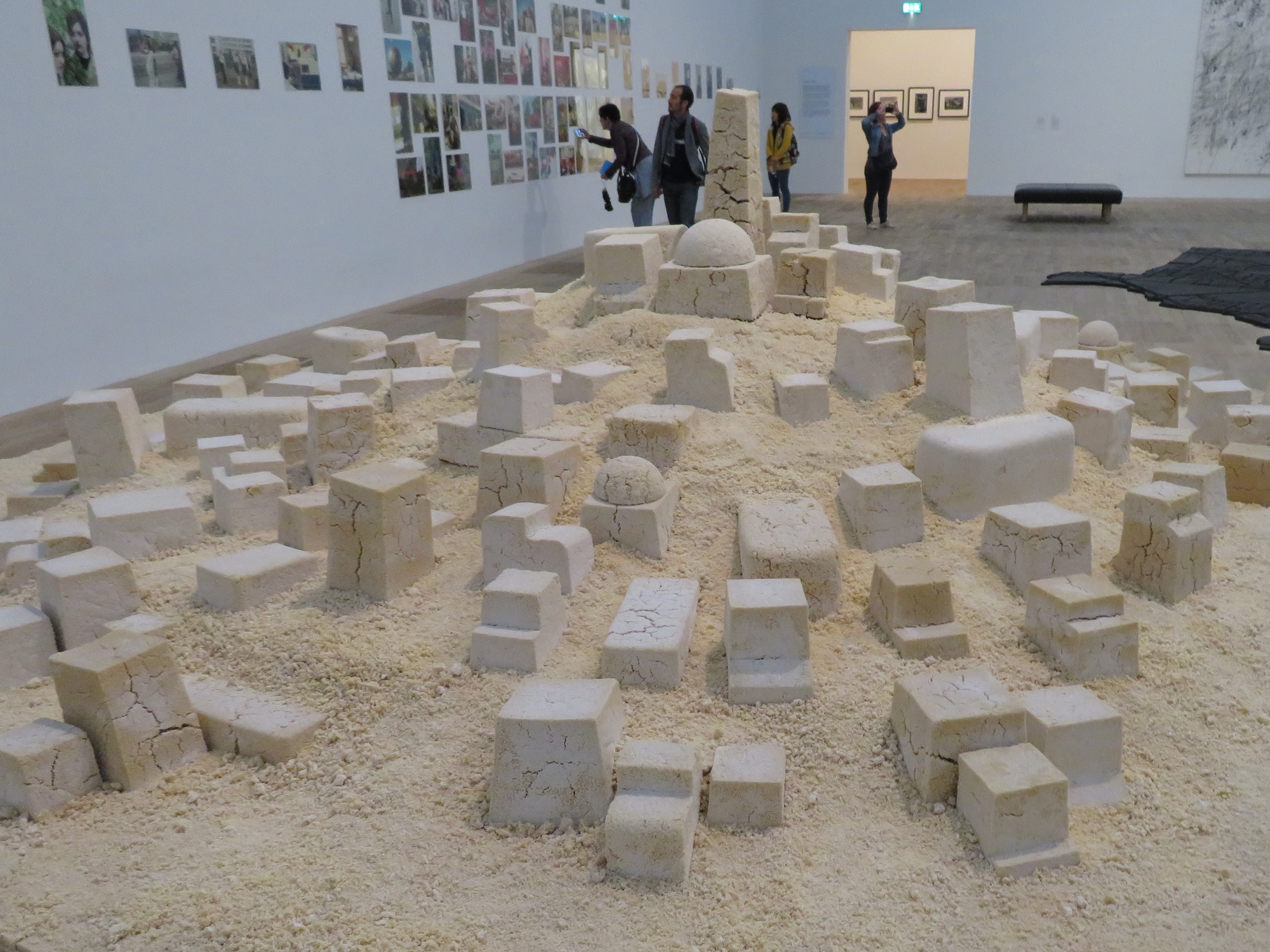Living in the City
From Londonhua WIKI
Living in the City
 Model of ancient Algerian city of Ghardaïa | |
| Kader Attia | |
|---|---|
| Artist | Attributed to Kader Attia |
| Year | 2009 |
Overview
This gallery goes through and highlights city life all around the globe during the 1970s. Galleries include black and white photographs of different city lifestyles, a model of an ancient city, and two large pieces of art hanging on opposites side of the wall.
Contents
Sirkka-Liisa Konttinen
 Model of ancient Algerian city of Ghardaïa | |
| Kader Attia | |
|---|---|
| Artist | Attributed to Kader Attia |
| Year | 2009 |
Konttinen's contribution to the gallery is a set of black and white photographs called the Byker collection. Byker was an estate of nineteenth-century terraced houses, located in Newcastle upon Tyne, in north east England. Konttinen arrived there in 1969 when the area was already destined for demolition to make way for a new purpose-built estate. Despite this, Konttinen was drawn to the humor, vibrancy, and resilience of the residents and decided to make it her home, living in the area until her own house was demolished. The Byker series contains a variety of photos taken over 12 years, from images captured spontaneously on the street to intimate views into the homes of people of Byker.
At one point, Konttinen set up a portrait studio in a disused hairdressing salon, offering free portraits to local residents. Her continued engagement with the local community helped her to gain their trust. 'Being a foreigner gave me one advantage: I could be nosey, and be forgiven,' she has said. 'Many doors were opened for me that would have remained closed to another photographer, and invitations extended to the kind of hospitality and intimacy that would normally be reserved for family only.'
In 1969, Konttinen helped to found the Amber Film and Photography Collective. Based on Newcastle upon Tyne, their objective is to establish a creative relationship with local communities and to document working class life in the region. Konttinen is still active in the group today.
Kader Attia
 Model of ancient Algerian city of Ghardaïa | |
| Kader Attia | |
|---|---|
| Artist | Attributed to Kader Attia |
| Year | 2009 |
Attia's contribution to the gallery was his model of the ancient Algerian city of Ghardaïa. The materials used to build the model are very unconventional. Instead of using clay or wood, Attia designed the model using cooked couscous and digital prints on paper. A Swiss-French architect named Le Corbusier visited Ghardaïa in 1931 and triped to photograph the elements of the ancient city. Fernand Pouillon, a follower of Le Corbusier, drew upon different ideas to design a social housing project in suburban Paris where Attia grew up. The artist's own history, and wider post-colonial relationship between Algeria and France are expressed through this work.
Mark Bradford
Bradford's contribution to the gallery is his work called Los Moscos. This large scale collage includes materials found by the artist on the streets around his studio in Los Angeles. Visually suggestive of aerial maps of sprawling, urban areas, the collage is constructed entirely from paper fragments which, the artist believes, 'act as memory of things pasted and things past. You can peel away the layers of paper and it's like reading the streets through the signs.' The work takes its title from a derogatory slang term for migrant day laborers in the San Francisco Bay Area, reflecting the artist's long standing interest in the sub-cultures of the inner city.
Julie Mehretu
Julie Mehretu's works at the gallery is called the Mogamma. The Mogamma is a the government building in Tahrir Square in Cairo, which formed a backdrop for the protects against Hosni Mubarak's regime in early 2011. Mehretu has overlaid architectural drawings of the Mogamma with those of other locations associated with public unrest, including Addis Ababa's Meskel Square and New York's Zuccotti Park, the site of the 'occupy' protects. Using digital images and projecting them onto the surface of the canvas, Mehretu complicates the drawn plans so that we can no longer see them clearly. The resulting painting could be seen as a memorial to collective sites of communal resistance.